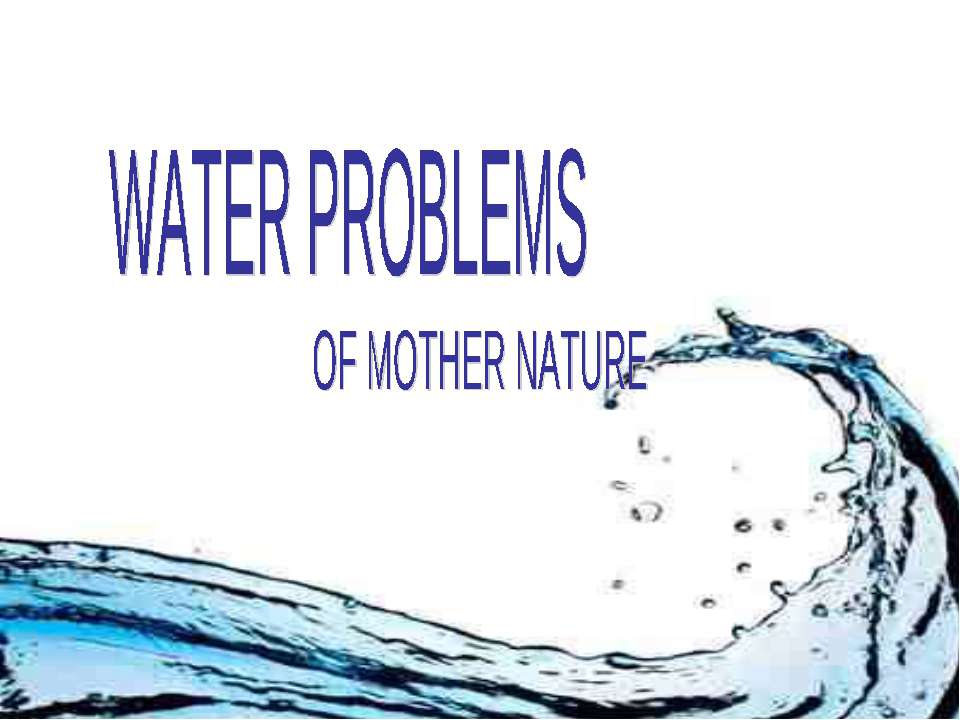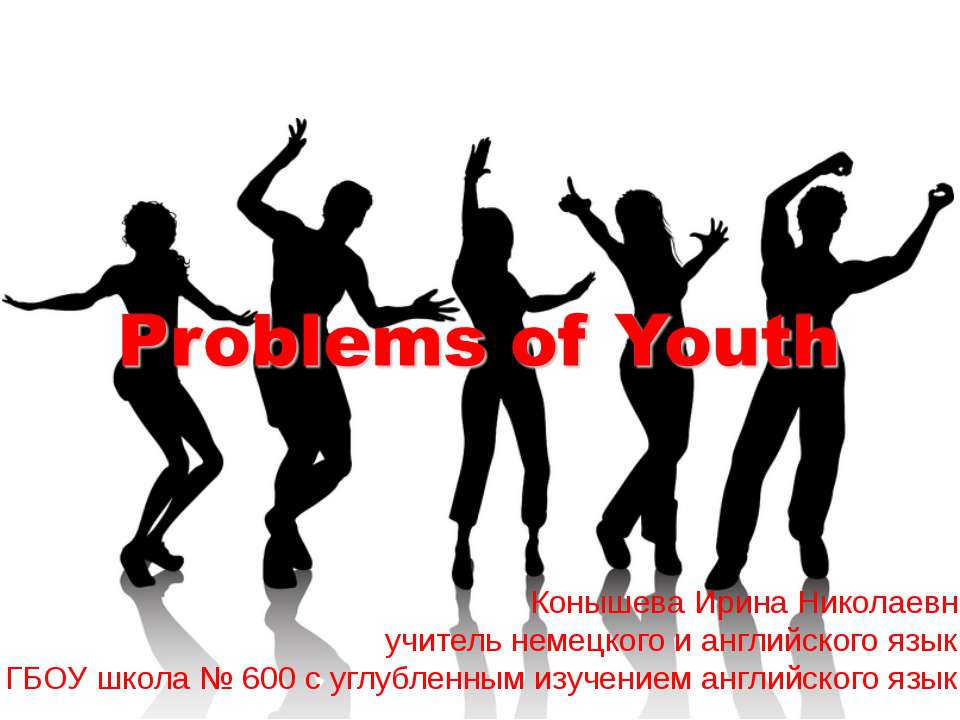Презентация - "Water problems of mother nature"

- Презентации / Презентации по английскому языку
- 0
- 14.10.20
Просмотреть и скачать презентацию на тему "Water problems of mother nature"
Сайт klass-uchebnik.com предлагает качественные учебные материалы для школьников, родителей и учителей. Здесь можно бесплатно читать и скачивать современные учебники, рабочие тетради, а также наглядные презентации по всем предметам школьной программы. Материалы распределены по классам и темам, что делает поиск максимально удобным. Каждое пособие отличается логичной структурой, доступной подачей материала и соответствует действующим образовательным стандартам. Благодаря простому языку, наглядным схемам и практическим заданиям, обучение становится легче и эффективнее. Учебники подойдут как для ежедневной подготовки к урокам, так и для систематического повторения перед экзаменами.
Особое внимание стоит уделить разделу с презентациями - они становятся отличным визуальным дополнением к теории, помогают лучше понять сложные темы и удерживают внимание учащихся. Такие материалы удобно использовать в классе на интерактивной доске или при самостоятельной подготовке дома. Все размещённые на платформе материалы проверены на актуальность и соответствие учебной программе. Это делает сайт надёжным помощником в образовательном процессе для всех участников: школьников, учителей и родителей. Особенно удобно, что всё доступно онлайн без регистрации и в свободном доступе.
Если вы ищете надежный источник для подготовки к урокам, контрольным и экзаменам - klass-uchebnik.com станет отличным выбором. Здесь вы найдёте всё необходимое, включая "Water problems of mother nature", чтобы сделать обучение более организованным, интересным и результативным.
Waters on the Earth contains about 1500 million км³, and fresh waters make an order of 10 % of the general planetary water-supply.
The most part of water is not in open reservoirs, and in earth crust: 110-190 million км³. These waters are subdivided into two types: ♦ underground; ♦ a surface water.
Water pollution is the contamination of water bodies (e.g. lakes, rivers, oceans and groundwater). Water pollution occurs when pollutants are discharged directly or indirectly into water bodies without adequate treatment to remove harmful compounds. Fish and reptiles can’t live in them. All the birds leave their habitats and many plants die. The polluted water ruins more people, than war and all other forms
♦ The largest potential source of pollution — factories and plants. ♦ Harmful substances get to the rivers and lakes with rain waters flowing from territories of cities and fields. ♦ Fast pollution of underground waters round cities. ♦ Forestry and open drainage — sources of a considerable quantity of the substances getting to fresh water, first of all iron, aluminum and cadmium
MEDITERRANEAN SEA THE DIRTIEST IN THE WORLD Waters of the Mediterranean are polluted, especially in areas of large seaports, oil products and other waste, - it becomes hazardous for health. In each cubic meter of the Mediterranean water 33 kinds of a various waste contain, and on each liter 10 grams of oil products are necessary.
The dirtiest river of the world is in Indonesia. Citarum – the river in Indonesia, flowing in Djakarta. Natives have already forgotten that there fish once was found. To collect garbage in the river and to hand over for processing – now much more favourably, than to fish. CITARUM THE DIRTIEST RIVER IN THE WORLD
In 1966 a pulp-and-paper factory was built on the shore of Lake Baikal. After decades of protest, the plant was closed in November 2008. However, on 4 January 2010 the production was resumed. On 13 January 2010 Vladimir Putin introduced changes in the legislation legalising the operation of the mill. This was based on Putin's visual verification from a mini-submarine "I could see with my own eyes — and scientists can confirm — Baikal is in good condition and there is practically no pollution".
Transformation into “blossoming oases” deserts of Kazakhstan, Uzbekistan and Turkmen has ended with catastrophic reduction of the area of Aral Sea. The branched out network of irrigation canals has disturbed balance between inflow of water and its evaporation, having transformed coast Aral in the cemetery of the ships.
PEOPLE MUST TAKE CARE OF THEIR HEALTH. EACH OF US MUST DO EVERYTHING TO KEEP WATER CLEAN. WATER-SUPPLIES ON THE EARTH AREN'T BOUNDLESS. BUT THEY ARE USED BY PEOPLE EVERY DAY. THEREFORE IT IS NECESSARY NOT ONLY TO CLEAR THEM, BUT ALSO NOT TO POLLUTE.
















